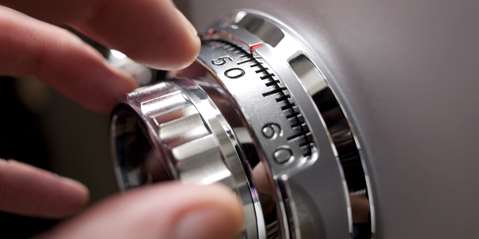Your Cart is Empty
Categories
Industry
Lock It Up - 10 Things You Need to Keep in Your Safe

Most people are well aware of the importance of keeping their valuables stored away in a fireproof safe, but sadly only a relative few have actually taken the steps to do it. This lack of preparation can sometimes come from an uncertainty as far as what type of items need to go in the safe, and what type of safe to get. If you’re not quite sure what you need to keep in your fireproof safe at home, don’t despair–below are 10 suggestions you can keep in mind when it’s time to store away your valuables, as well as some suggestions for selecting a safe.
- Your current property insurance policies, along with the contact information for your insurance agents. Should your home suffer any kind of damage from a fire or otherwise, this is the first thing you’ll need to have on hand in order for you to file a claim.
- Original birth certificates, passports and Social Security cards. Make sure to do this for every member of your family. Not only will these documents be very handy for identification purposes, but they can be a pain to replace if you don’t have them. For example, in 2005, many of the victims who fled to other states to escape Hurricane Katrina ran into all kinds of problems when they couldn’t produce any type of official identification documentation. Make sure to keep the original documents in your safe, and copies of the documents in another secure location, such as a locked file cabinet. If you have any documents for your pets, include them as well.
- A printed list of all family members’ prescription medicines, doctors and contact information for any pharmacies that you use. These can come in handy at your annual medical checkups, and they’re important to have available in case of a medical emergency. If you’re traveling anywhere–especially out of state or out of the country–it’s a good idea to keep a copy of this information on you as well.
- Important documents regarding life insurance policies, retirement or investment accounts, regular bank accounts and all pertinent contact information. In the unfortunate even that you are displaced by a fire, you’re going to need to be sure that you have ready access to funds. This can greatly help with estate planning as well. Be sure to double-check these documents every six months to a year, and update the information as needed.
- Important legal documents such as living wills, powers of attorney, health care proxies, etc.If you’ve been designated as an attorney-in-fact, a health care surrogate or otherwise for a family member or loved one, you need to make sure that you have these documents in a safe place so that your legal rights (and those of your loved ones) can be protected.
- Titles to any vehicles. If you own your vehicle outright, make sure that you keep the original title for the vehicle in your safe. You can also include a set of spare keys to the vehicle as well.
- Keys to any safety deposit boxes. If you have a safety deposit box at a local bank, it’s a good idea to store the spare keys to the box in your safe at home. This will serve as an added layer of protection for your off-site valuables.
- Copies of any trusts, wills or estate plans for which you have been designated as the trustee or executor. It’s important to emphasize the word “copies,” because it’s best for the originals to be kept with the attorney who created and prepared them. If any of the terms of these documents need to be changed or updated, you should consult the attorney to make the revisions to the original documents.
- Valuable items such as cash, jewelry, coins, etc. If there’s ever an emergency and you need immediate access to cash or other items of tangible value, it’s always good to have at least some of these on hand in your safe.
- Firearms.Though you never want to be forced to use it, having quick access to a firearm can make the difference between life and death in an emergency situation. The ideal safe will provide easy access to your firearm when you need it, but also be secure enough to be inaccessible to curious children.
When it comes to airtight security, keyless safes are the top choice, because they require authentication by code in order to be unlocked. The Gardall MS911-G-E “microwave-style” fire safe is another top choice due to its exceptional strength and convenient keypad access. It has a more compact size, but is constructed of extra-heavy steel to provide rock-solid protection for your assets. The Gardall MS911-G-E also includes a pull-out tray for convenient storage of smaller items.
While much of what you ultimately decide to keep in your safe will be determined by its size and location, you can use the above suggestions as a general framework to get you started. Keep in mind that having a robust home monitoring system in place is one of the best ways to decrease the risk of your home being destroyed by a fire. The BeHome247 home automation system enables you to use “smart” smoke detectors in your home that will notify you via a text message or email alert if any danger of fire has been detected. When your system has home security cameras installed as well, you can pull up real-time video footage of your home on your smartphone to see what the problem might be – whether a fire or a break-in – and then take the appropriate action.
Browse by Category
© 2025 GoKeyless. All rights reserved. Privacy Policy. Terms of Use. Powered by Brandography.



 Over 5 Million Locks Sold
Over 5 Million Locks Sold Trusted Since 2003
Trusted Since 2003 Help
Help
